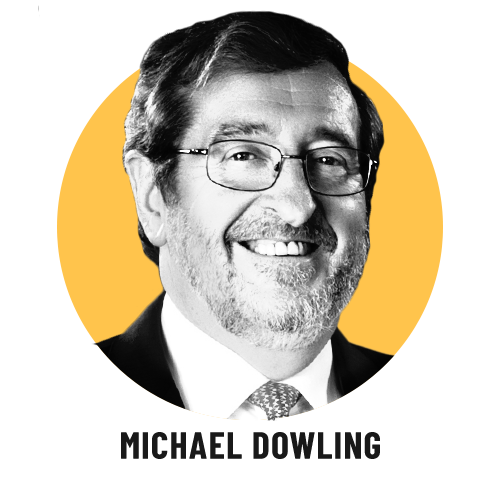As a nation, has our response to the gun crisis really been any different?
We have a public health crisis of gun violence in this country that has grown increasingly worse under our watch. To date, we've collectively done very little to abate it and I would argue that, in so doing, we have failed to provide for the health and wellness of our communities. It is time for us to use our collective voice, the power of our lobby and the financial weight of the $3.5 trillion health care industry to combat gun violence in America.
To be sure, there is plenty of blame to go around for the growth of this epidemic. It is easy to point fingers at members of Congress for their inaction, the vile rhetoric of some politicians who stoke the flames of hatred, the lax laws that provide far-too-easy access to firearms, or the NRA's intractable opposition to any and all common sense legislation. It is far more difficult to look in the mirror and acknowledge what we have or haven't done. Sadly, as a nation, we have become numb to the bloodshed. Collectively, we have failed to generate sufficient public outrage to bring about the changes that will help prevent this mindless slaughter.
Recently, Jon Stewart provided a model of how health care public policy leadership can work when he and others held Congress accountable to "do their job" and approve the September 11th Victim Compensation Fund. It can work in this instance, too. The voice of the American citizen is a most powerful thing.
Gun violence is a national tragedy and a public health crisis that demands we use our political capital and advocacy. Health care CEOs and the 18 million men and women who are part of the nation's health care workforce can be an incredibly powerful voice for change. I believe the lessons we've learned in health care can apply to this crisis. Together we must mobilize our employees to:
Act with a sense of purpose
While no elected officials should be judged solely on their position on a single issue, we need to put pressure on those who fail to support sensible gun legislation that includes background checks. We need to educate ourselves about the positions elected officials take regarding sensible gun legislation and vote for those willing to address the crisis. Visit opensecrets.org to learn their positions and who receives gun lobby money.
Enhance investments in mental health, but don't stigmatize
Increase awareness of the need for more behavioral health funding, treatment and support. But at the same time, it's important that we don't demonize the mentally ill.
Clearly, all would agree that we must prohibit the sale of firearms to individuals who are at risk of harming themselves or others. However, scientists estimate that only about one in five mass murderers are psychotic or delusional. Despite claims to the contrary, most do not have any severe or diagnosable disorder; they tend to be disgruntled and aggrieved individuals whose anger has manifested in violence.
Use an ounce of prevention instead of a pound of cure
Prevent the sale and access of firearms that serve no other purpose than to inflict mass casualties. Increase awareness and training to identify risk factors and better understand "red flag" laws that allow police, district attorneys, family or household members and school administrators to file a petition with the State Supreme Court if they have reason to believe a gun owner is a threat to themselves or others.
Educate your staffs and communities — and prepare for worst case scenarios
While we would all like to think that the tragedies that struck El Paso, Texas, and Dayton, Ohio, would never occur in our local communities, it's clear that gun violence has no boundaries. That's why active-shooter drills are essential for community residents, as well as health care employees, who want and need greater protection against workplace violence.
Another valuable program, called "Stop the Bleed" provides training to staff and community residents on how to render aid to trauma victims. We can prepare for the worst by establishing "bleeding control stations" in schools and other high traffic, public places, making available gauze and tourniquets that can be applied to open wounds and stop or reduce bleeding before first-responders arrive at the scene.
Know a gun buyer's history
A doctor wouldn't prescribe medicine without knowing a patient's background and history as a way of ensuring the medicine will cause no harm. Should we allow for the sale of guns without the same degree of caution?
In 2019 alone, 62 people have been killed in mass shootings, including 31 earlier this month in Dayton and El Paso. Enough is enough. I'm asking my fellow health care executives, and all who are concerned about this public health crisis, to join me in using our collective voices to enact needed change. While we are a nation that's grieving, we should also be a nation that's angry and demands accountability on the part of our elected officials.
Bagikan Berita Ini















0 Response to "Enough is enough. I'm calling on health care CEOs to take a stand on gun control"
Post a Comment